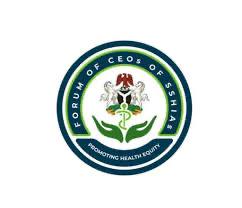Amid rising concerns over the health implications of excessive salt consumption, medical experts in Nigeria have reiterated the importance of adhering strictly to scientifically proven dietary recommendations. This advisory follows recent misinformation propagated in a viral video by Pastor Chris Oyakhilome, President of Loveworld Incorporated (Christ Embassy), where he suggested that Africans were being misled to reduce salt intake in a bid to boost the sale of sodium-based medications.
Reacting to the controversial claim, the Federal Ministry of Health and Social Welfare issued a strong rebuttal, emphasizing that excessive salt intake poses a serious threat to public health. In a statement signed by the Deputy Director of Information and Public Relations, Laba Balogun, the ministry acknowledged the importance of sodium—a major component of salt—in supporting critical bodily functions such as nerve signaling, muscle contraction, and fluid balance. However, the ministry stressed that overconsumption remains the primary concern.
“While we deeply respect the role of faith leaders in our communities, it is essential to counter health-related misinformation that may endanger lives. Salt is not inherently harmful; the issue lies with excessive intake. Global health authorities, including the World Health Organization (WHO), recommend that individuals consume no more than 5 grams of salt per day—equivalent to about one teaspoonful,” the statement read.
Medical professionals have thrown their weight behind the government’s position, urging Nigerians not to let religious sentiments override established medical facts. Professor Femi Adelowo, a Consultant Rheumatologist and Professor of Medicine, described medical advice on salt consumption as grounded in evidence and scientific research. He warned that failure to follow such guidance could lead to severe health issues.
“Health decisions should be based on science and evidence, not hearsay or unverified claims. If a doctor prescribes medication for hypertension or malaria, that same medical authority’s advice on salt intake should not be ignored. It is dangerous to accept one aspect of treatment and discard the other,” Adelowo emphasized.
Supporting this viewpoint, registered nutritionist Odunayo Babatunde outlined the long-term consequences of consuming too much salt. She explained that high sodium levels can impair kidney function, leading to an increase in blood volume and putting the cardiovascular system under undue strain. This condition, she said, contributes significantly to high blood pressure, which can culminate in strokes, heart failure, or chronic kidney disease.
“In the long run, excess salt can also cause fluid buildup in tissues and even promote calcium loss from the bones, potentially triggering osteoporosis,” Babatunde explained. “Being aware of high-sodium foods and moderating their intake is key to maintaining healthy salt consumption levels.”
Data from the World Health Organization indicates that while the recommended daily salt intake is under 2,000 milligrams—or 5 grams—the global average stands at a concerning 10.8 grams per day, more than double the advised limit. This trend has raised alarms globally, prompting WHO and 194 countries, including Nigeria, to commit in 2013 to a 30 percent reduction in sodium intake by 2025. However, a 2023 review by the WHO showed that progress toward this goal has been inadequate.
Further corroborating these concerns, the Harvard T.H. Chan School of Public Health also lists high blood pressure, heart disease, stroke, water retention, excessive thirst, and kidney disorders as potential outcomes of chronic salt overconsumption.
As misinformation continues to spread, Nigerian health authorities and medical professionals are calling on citizens to prioritize evidence-based advice over unverified claims, stressing that public health must not be compromised by pseudoscientific narratives.







